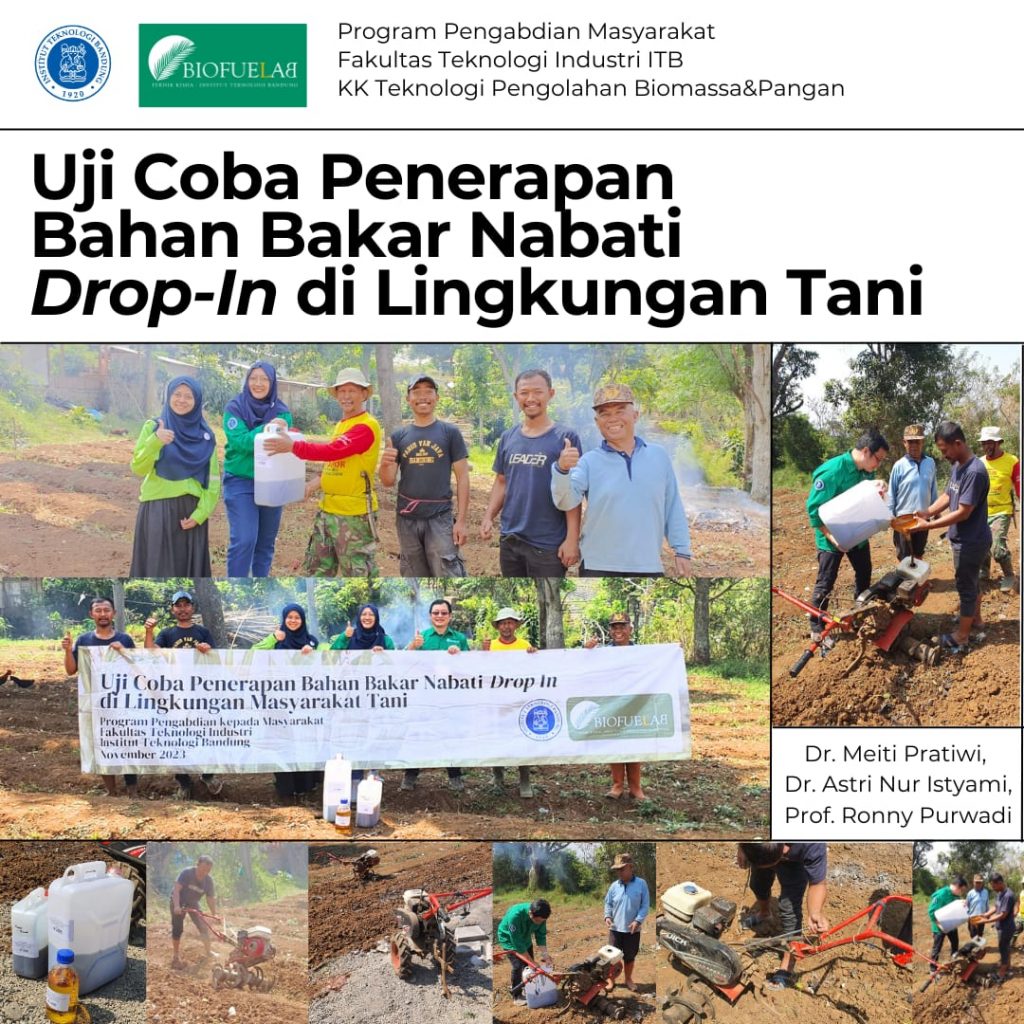

Meiti Pratiwi
Limitations of fossil fuel sources and their impact on the environment are the main issues in energy security. As a follow -up, Vegetable Fuel Production Technology (BBN) has developed rapidly in the last decade. Biodiesel and Bioethanol are two examples of vegetable fuels that have been produced commercially in several countries. Although both contribute to reducing fossil fuel consumption, but their use is limited because both are a group of compounds that are different from their predecessor fuels (gasoline and diesel fuel). The fuel used in vehicle engines is currently a non-oxygenate hydrocarbon compound, while biodiesel and bioethanol are oxygenate hydrocarbon compounds. As a result, these two types of BBN must be mixed with fossil fuels at a certain level, or applied to modified vehicle engines.
Vegetable fuel type drop in is vegetable fuel Derived from the same group as fossil fuels, namely non-oxygenate hydrocarbons. Thus, this type of fuel can be directly used in conventional vehicle engines without requiring mixing with BBM or engine modification. In 2016, the Research Team from the Faculty of Industrial Technology ITB had begun research and development of producing vegetable fuel production type drop-in from palm oil-based palm oil derivatives via metal soap decarboxylation. This technology is quite practical to be applied in remote areas of Indonesia because it does not require high operating pressure. From the previous research program, BBN production via metal soap decarboxylation has been successfully carried out on a laboratory scale and a mini-pilot scale (20 kg of raw material/day). Prototype of vegetable fuel has been produced as much as 17 L for diesel engine fuel and 4 L for gasoline engine fuel, but has not been tested on the engine. Meanwhile, there are machines that are commonly used in the agricultural industry, such as tractors and generators, which have the potential to use this BBN.
In order to be applied in the public sphere, this technology needs to be introduced and proven to certain communities. People in the countryside, as the main target of this technology, generally do not recognize the opportunities for independent vegetable fuel production. This community service proposal is submitted in the context of organizing the education, socialization, and trials of BBN based on palm oil in the farm community. The target of this program is rural communities in Pagerwangi Village, Kec. Lembang, Kab. West Bandung who works as a farmer, as a user of agricultural equipment such as tractors and generators. This program can be a means of community education related to opportunities for the use of vegetable fuel in the agricultural community, as well as an initiation of the application of vegetable fuel in rural communities. If the 1st year program gets a good response from the community, it is hoped that in the 2nd year the program can be continued with the manufacture and installation of the BBN Production Unit drop-in in the Pagerwangi Village environment.
Carry out education to the farm community related to the potential and benefits of using vegetable fuel to support agricultural facilities and infrastructure; Organizing trials of vegetable fuel research products on equipment in the farm community environment
Benefits for Gapoktan Pagerwangi Village: - Obtain education and socialization related to the application of vegetable fuel in the farm community environment - Opening opportunities for advanced cooperation with the FTI ITB team for vegetable fuel production in Pagerwangi Village if the product is considered to be appropriate for implementation Benefits for KK and FTI ITB: - Get feedback (feed back) related to vegetable fuel research products so that it can be developed further - Provide knowledge and experience for lecturer staff to apply their knowledge in the realm of society Benefits for Indonesia: - Being the first step to increase the independence of rural energy and reduce dependence on imported fuel